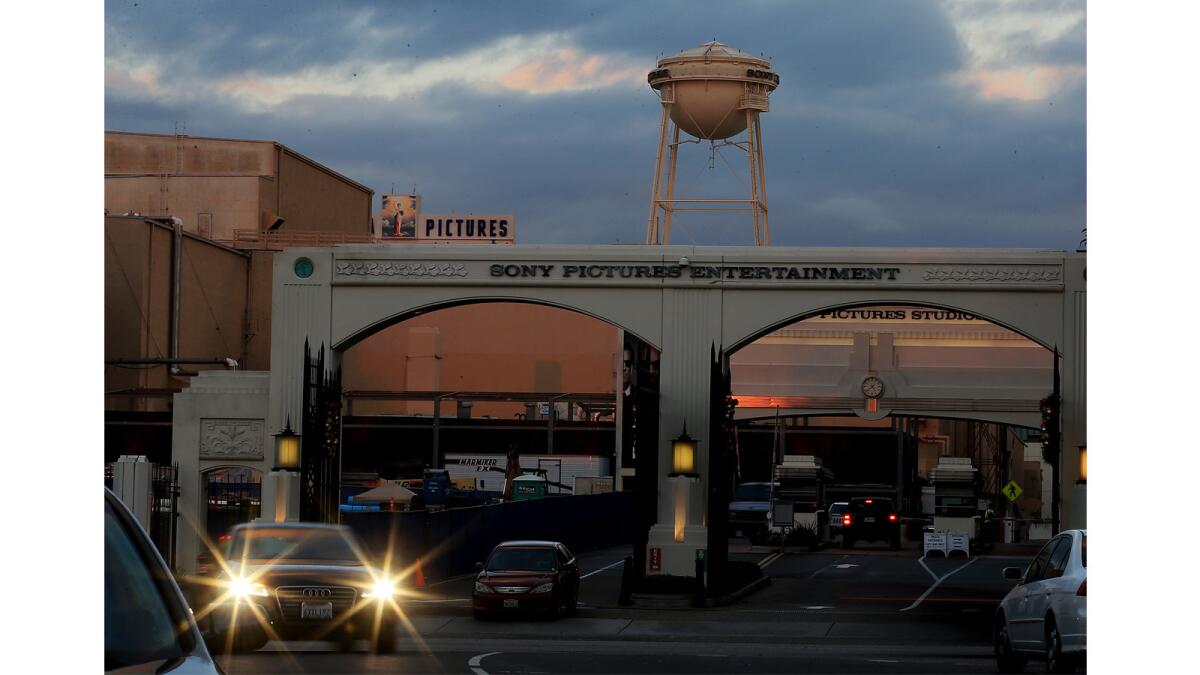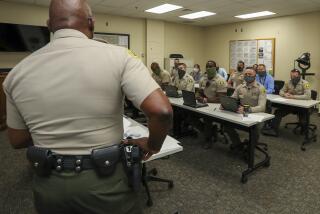Sony says studio hack cost it $15 million in fiscal third quarter

Sony Corp. said it has spent as estimated $15 million investigating and recovering from the massive cyberattack that crippled its movie and TV studio.
Since November, Sony Pictures Entertainment has been working to repair the damage caused by a group calling itself Guardians of Peace in an assault that the U.S. government has blamed on North Korea.
The Tokyo-based electronics giant disclosed the $15 million in “investigation and remediation costs” as part of its Wednesday earnings forecast for its fiscal third quarter, which ended Dec. 31.
Analysts had said the costs to the company from the hacking attack could end up totaling tens of millions of dollars. However, Sony executives in Japan told reporters that the company doesn’t expect a significant loss as a result of the assault.
“We had insurance against cyberattacks and will be able to recover a significant portion of the costs,” said Kazuhiko Takeda, vice president of Sony’s corporate planning department, according to the Associated Press.
To be sure, the damage to the studio is not limited to the costs of finding the hackers and repairing the damage. The cyberattack resulted in troves of sensitive data leaking onto the Internet, including some embarrassing emails between executives and thousands of Social Security numbers belonging to people connected to the company.
In addition, multiple new and unreleased movies were leaked online in the wake of the hack.
The hack did affect the company’s quarterly earnings. Sony released “provisional” earnings for the movie studio, while it delayed complete earnings until next month because of the damage to the entertainment division’s computer systems.
Revenue for Sony Pictures was $1.6 billion in the quarter, down 23% from the same period of time a year ago, thanks partly to lower box-office totals and home entertainment sales of its films. Its profit dropped to $20 million year-over-year, due to the lower motion picture and television revenue and the costs from the hack.
Its highest-grossing movie in the quarter was “Fury,” the World War II drama starring Brad Pitt, which has taken in $208 million worldwide.
It also released the musical remake “Annie” and the controversial comedy “The Interview,” which is believed to be at the center of the cyberattack.
The Culver City-based studio released “The Interview” online and in independent theaters after most major theater chains dropped the film in the face of threats of violence from hackers.
“The Interview,” which cost about $44 million to make, had taken in $40 million from Internet and other video on-demand outlets as of Jan. 20. In theaters, it grossed a little more than $6 million.
For its full fiscal year that ends in March, Sony Pictures is forecasting about $7.6 billion in sales, an increase from its earlier forecast. However, it lowered its operating income forecast because of costs from the hack and lower revenue from its media networks business.
Sony Corp. has been trying to turn around its big electronics business. Last year, it sold its personal computer business and is spinning its TV production unit into a wholly owned subsidiary.
Sony’s total sales were $21.1 billion in the quarter, up about 6% from a year ago, thanks in part to strong sales of the PlayStation 4 game console.
The company also raised forecasts for the full year, including an improved outlook for sales and a narrower net loss. In its earnings statement, the firm said the effect of the cyberattack on Sony Pictures “will not be material.”
Investors were cheered by the news. U.S. shares of Sony Corp. rose 10% to $25.80 a share in midday trading.
Follow Ryan Faughnder on Twitter for more entertainment business coverage: @rfaughnder
More to Read
From the Oscars to the Emmys.
Get the Envelope newsletter for exclusive awards season coverage, behind-the-scenes stories from the Envelope podcast and columnist Glenn Whipp’s must-read analysis.
You may occasionally receive promotional content from the Los Angeles Times.








